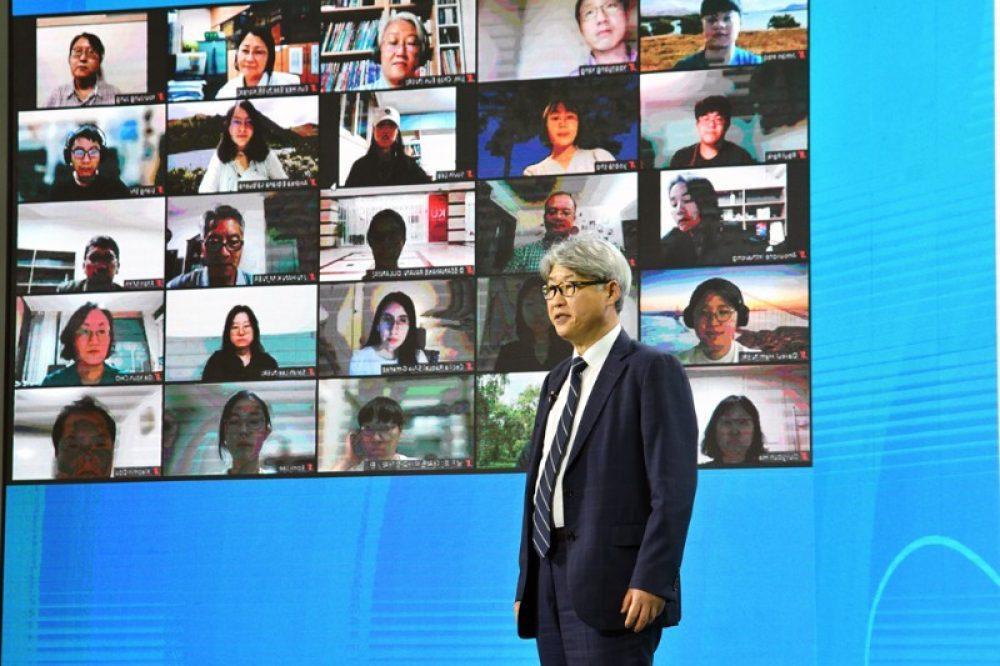More collaborative approaches are emerging to prevent the loss of biodiversity.
Original post in Nature.
Among today’s environmental challenges, the accelerating loss of biodiversity is a critical issue, threatening human survival, speakers at a conference in Seoul, South Korea have warned. Now is the time, they said, for all stakeholders to be united in seeking solutions for restoring biodiversity, so humans can coexist with other species.
The 2021 P4G Seoul Summit Green Future Week Session on Biodiversity, jointly organized by South Korea’s Ministry of Environment and the National Institute of Biological Resources (NIBR), was held online on 27 May 2021. ‘Hope for the Future, Biodiversity Restoration,’ was aimed at deepening biodiversity understanding and raising awareness of behaviour change. While some presenters made the link between biodiversity loss and the increasing emergence of infectious diseases such as COVID-19, others painted a picture of a brighter future by introducing successful examples of biodiversity restoration.
There were many worrying facts and figures. For example, according to Dolors Armenteras, a geographer and biodiversity conservation professor at the National University of Colombia, in the Amazon, where 50% of the Earth’s tropical forests are located, more than 1.1 million square kilometres of land has been cleared since 1985. Such loss means the planet is losing its capacity to regulate atmospheric gas ratios which disrupts the water cycle, causing temperature rises, more flooding, droughts and associated natural disasters. “All these are a very problematic vicious cycle,” said Armenteras.
In a keynote speech, Ban Ki-moon, a former United Nations secretary-general, said: “In spite of enhanced actions on climate change, little progress has been made on biological diversity.” He pointed out that “COVID-19 is a clear sign of what humanity could face as a result of biodiversity loss and ecological destruction.” In his view, the world urgently needs to come up with nature-based solutions, addressing climate change and biodiversity degradation in an integrated manner.
Nature-based solutions is a concept created and developed by the International Union for Conservation of Nature (IUCN), a global environment and policy network. It includes “actions to protect, sustainably manage and restore natural and modified ecosystems that address societal challenges effectively and adaptively, to provide human wellbeing and biodiversity benefits.” Yoon Jongsoo, president of IUCN National Committee of South Korea, said nature-based solutions are not yet reflected in many government policies because of the lack of political motivation. “We need to continue to urge our political leaders to incorporate a biodiversity agenda as well as a climate-change agenda in all major national policies in all sectors,” he said.
The NIBR of the Ministry of Environment of South Korea has been supporting national biodiversity conservation programmes since its establishment in 2007, and taking the lead in promoting the sustainable use of biodiversity in collaboration with industry, academia and other stakeholders at home and abroad. In order to make nature-based solutions policy, Bae Yeon Jae, president of the NIBR, emphasized the importance of raising the public’s awareness of the value of biodiversity.
In several video messages, talks and two sets of discussions, distinguished researchers, representatives of international organizations and top policymakers shared their insights on efforts to reach UN Sustainable Development Goals by 2030. Gretchen C. Daily, an expert in policy, finance, and management of natural resources at Stanford University, introduced InVEST, a free, open-source software, developed with more than 1,000 scientists, to guide the investment in, and conservation of, Earth’s natural capital. It has led to successful funding agreements in Colombia, for example, between downstream and upstream users of drinking water. “We need much more leadership from the financial sector,” she said.
Meanwhile, as Nature co-hosted the second part of the session, Magdalena Skipper, its editor-in-chief, spoke of the importance of science to tackle global crises. “Perhaps more than ever before, now is the time for science to be transparent for the knowledge to be shared equitably so that all may benefit, but also importantly all who have contributed receive appropriate credit,” she said.
Zoonoses
Given the global pandemic, much attention was paid to emergent infectious diseases. Choe Jae-chun, a biologist at Ewha Womans University, introduced a recent report that showed climate change has driven tropical bat species to move into southern China where SARS-CoV-2 may have arisen. He also said human encroachment into wild habitats is creating more opportunity for viruses and bacteria to move into humans and domestic animals. “We will probably go through this kind of pandemic again and again,” he said, unless humans and domestic animals reduce their numbers tremendously or increase the area of protected forests or ecosystems, to enable animal species to live undisturbed.
Choe’s argument was backed by Kate Jones, an ecologist at University College London, who outlined the leap pathogens make from animals to humans. Jones and colleagues reviewed a large number of studies across the world, and found that humans are “changing the ecosystem of species which have a higher probability of hosting and possibly transmitting pathogens into human populations”.
A whole systems approach is needed because environmental changes act on every single part of the ecosystem, Jones says. “Managing the ecosystem creates the solutions to our societal problems.”

